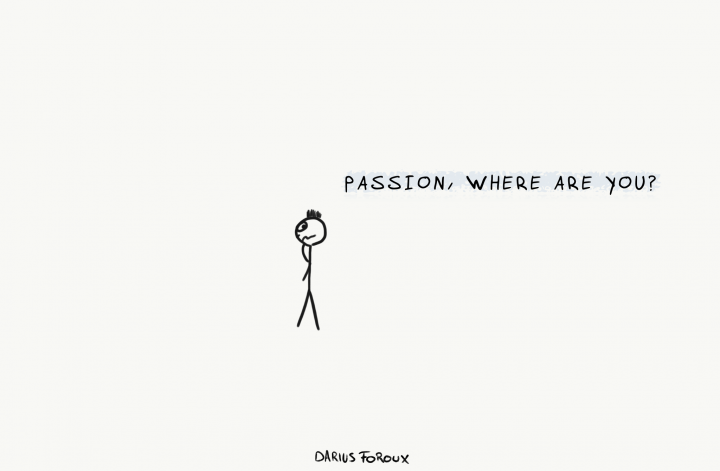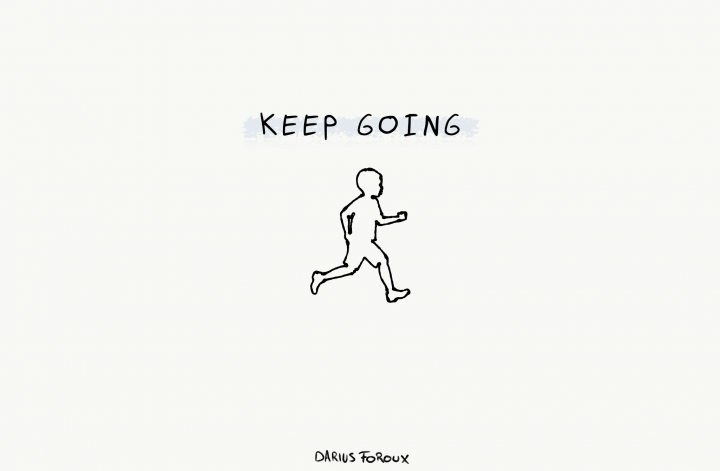You might have tried some common ways to beat procrastination. But, when it comes to certain tasks or goals, it can still be tough to stop putting things off.
It could be something small, like paying your taxes, or something big, like starting your own business. “Why can’t I stop procrastinating?!”
Maybe you’ve even tried the usual tips to avoid putting things off:
- Starting with the smallest/simplest component of a task. Imagine needing to write a pitch email you’ve been avoiding. Once you open your email app and begin typing—even if the initial draft isn’t great—you’ll likely finish the task. Starting gives you the momentum you need.
- Creating an environment that forces you to act is another common tip. This strategy involves creating a scenario where it’s harder not to do something. For example, some people spend huge money on gym equipment to motivate themselves to exercise, or they stock their home with only healthy food to simplify eating well.
- Using various productivity apps and tools is also recommended. I personally use the Waking Up app for meditation, the Reflection.app for my daily journaling habit, and so forth. Apps and tools make tasks much more convenient for us to do and avoid procrastination.
While these tips are helpful, they don’t tackle the root cause of why people fail to achieve their goals or complete tasks. They might help you for a temporary period, but they won’t cure a lifetime of procrastination.
The truth is, if you’re like most people, you find yourself procrastinating repeatedly. It’s a constant issue, and that’s because there’s a deeper reason behind your procrastination.
Your old self and procrastination
I know someone who always talked about writing his book and launching a professional writing career. He worked in academia as a lecturer, but he always wanted to pursue writing full time.
The thing is, this friend actually applied the usual procrastination tips: He started several manuscript drafts, he wrote articles, and he even saved enough money for what he called his “career fund” – which was supposed to let him live a whole year without work so he can focus on writing.
But the book never came out. The excuses were the same: The quality of what he wrote wasn’t good enough, he suddenly needed more money for a home improvement, or he didn’t have enough time to finish his manuscript.
One time, he finally admitted the real reason he never took the plunge of writing full-time: “I’m afraid my book will flop and I would be too embarrassed to show my face to my colleagues afterward.”
Essentially, he feared that his book would either not win any prestigious awards or not sell well. So even if he published his book while working for a university, he couldn’t handle the imagined impact that failure might have on his professional image.
Break free from your old self by not caring too much
This makes me think of a quote from Marcus Aurelius:
“I have often wondered how it is that every man loves himself more than all the rest of men, but yet sets less value on his own opinion of himself than on the opinion of others.”
Here’s the truth about the real root of consistent procrastination: Improvement in life means change. And humans are naturally afraid of change because it threatens their old selves.
The more something feels like a threat to your identity, the more likely you are to avoid it.
This means anything that might change the way you see yourself or challenge your self-perception can lead to procrastination. Interestingly, this applies to both positive and negative changes in your life.
- Earning a million dollars can shake up your identity just as much as going broke.
- Becoming a multi-platinum rock star can disrupt your sense of self as much as losing your job.
This is why people often fear success as much as they fear failure—it challenges their current identity and what they are familiar with.
Procrastination is emotional resistance
Generally, the hardest things for us to do in life are full of emotional resistance.
We often avoid actions like studying hard, moving away from our hometown, or starting to work on that idea we’ve always talked about because these things challenge our self-perception.
We all hold beliefs about our identity and tend to protect them. If I think I’m a nice person, I’ll steer clear of situations that might challenge that view. If I see myself as a shy introvert who’s afraid of crowds and public speaking, I’ll look for chances to reinforce that belief repeatedly.
Beliefs shape everything. Before we can change our actions and behaviors, we need to shift our self-perception and what we believe about ourselves.
This is also why I don’t recommend the usual “positive thinking” tips to procrastinators. As Epictetus said:
“First say to yourself what you would be; and then do what you have to do.”
Positive affirmations may work for some people. But I caution against being too attached to outcomes. Think about it. Have you noticed that the more you care about the outcome of things, they suddenly feel harder to achieve?
If I think I want to write an awesome article, I often take a longer time to write it, and the results may not be very good. But if I start with little to no imaginary pressure, the writing comes easier, and the results are better, too.
The limiting thoughts come in because the action suddenly has more ability to threaten your self-beliefs.
So stop protecting your old self. That’s the first step to truly breaking free from procrastination.




